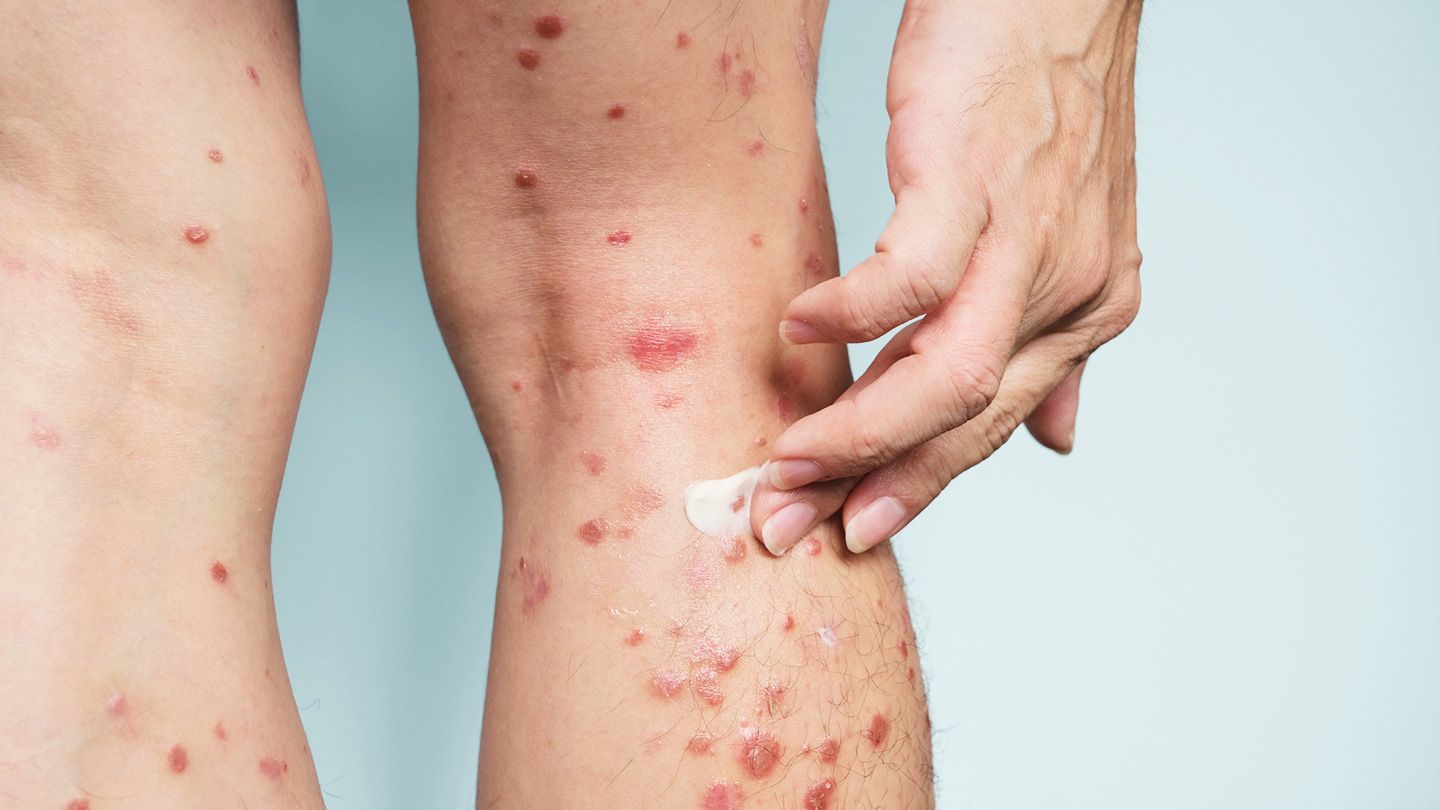1. Moisturize Your Skin at Least Twice a Day
2. Avoid Picking at Scales
“Pulling up scales can cause bleeding and trauma to skin, which can increase risk of scarring,” explains Kassouf. Instead, use emollients to keep scales in place until they exfoliate naturally.
3. Apply Cooling Relief
4. Skip Shaving During Flares
5. Use Steroid Creams as Directed
In some cases, psoriasis treatments can contribute to the problem. Overuse of topical steroids, for example, can thin the skin and cause changes to its collagen structure. This can lead to an atrophic (or indented) scar or even stretch marks, notes Kassouf.
Use only mild corticosteroid ointments on sensitive areas, such as your face or skin folds, and for treating widespread patches, recommends Kassouf. Use potent steroid creams for only a short time and only on thick areas of skin.
6. Talk to Your Doctor About Updating Your Treatment Plan
7. Weigh the Risks and Benefits of Phototherapy
Speaking of phototherapy (light therapy) can be an effective treatment for plaque psoriasis, it stimulates the skin’s pigment cells, which can make discoloration caused by psoriasis plaques more noticeable, and occasionally permanent. “This was more of a problem with older forms of light treatment,” Kassouf notes. “Newer, narrow band UVB therapy has significantly minimized the risk of permanent pigment changes, but there is still some risk.” Talk to your dermatologist about the pros and cons of light therapy for your individual health.
8. Consider Laser Treatment if You Have Any Scarring
If you have scars or pigment changes from psoriasis flares that don’t improve with time and treatment, ask your dermatologist if you’re a candidate for laser treatment, Kassouf recommends. “In some cases, we will use fractional or vascular lasers to treat scarring,” she says Kassouf. “The laser sends signals to that area of skin to tell it to keep remodeling, which can encourage those scars to get closer to normal.”
The Takeaway
- Scarring from psoriasis is rare but can happen particularly with scratching or picking at plaques or not using steroid cream as directed.
- Moisturizing regularly and applying a cool cloth to affected areas can help relieve itchiness, while avoiding shaving during flares help prevent complications and scarring.
- Talk to your doctor about updating your treatment plan if you’re having difficulty managing flares.
Additional research by Julia Califano.
Read the full article here




